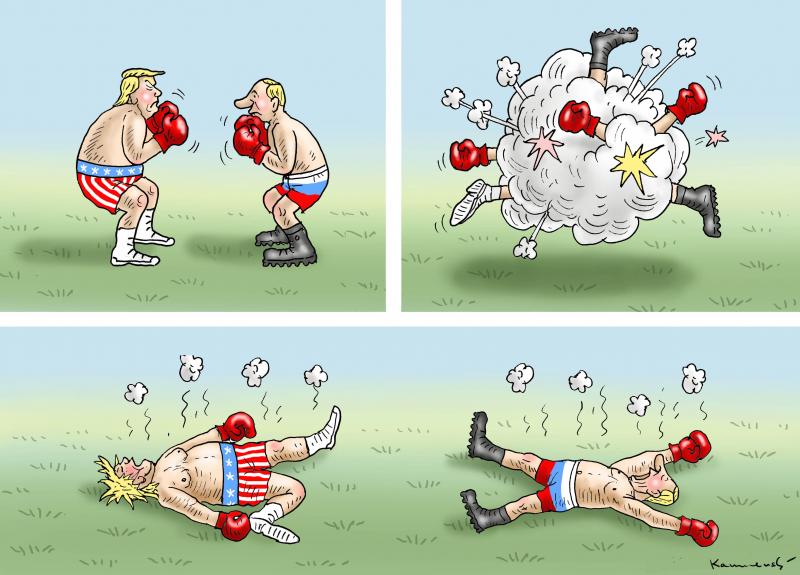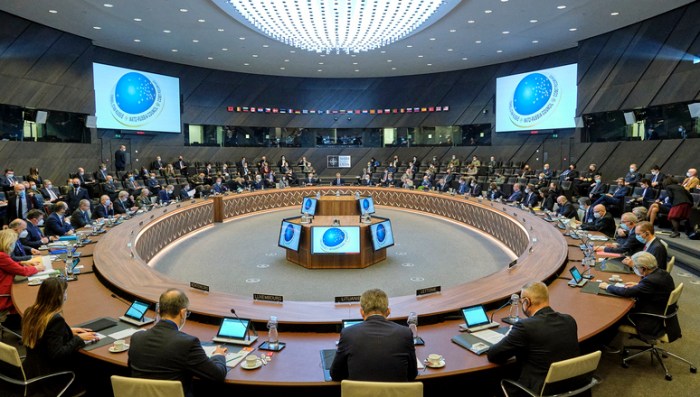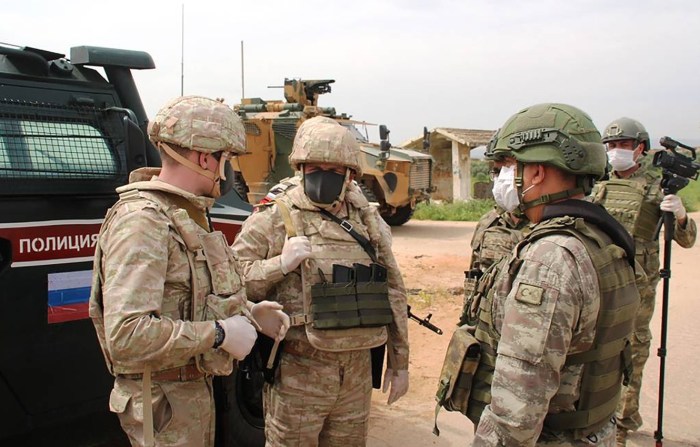The east west confrontation bush mentions is – The East-West Confrontation, a pivotal chapter in global history, finds renewed relevance as we delve into the views and policies of former US President George H. W. Bush. His experiences and leadership shaped the course of this ideological struggle, leaving an enduring legacy that continues to resonate today.
This comprehensive analysis will explore the historical context of the East-West Confrontation, examining the roles of the United States and the Soviet Union. We will delve into Bush’s personal experiences and how they influenced his perspectives on this conflict. Furthermore, we will dissect the major policies he implemented and their impact on the trajectory of the Cold War.
Historical Context

The East-West Confrontation was a period of geopolitical tension between the United States and the Soviet Union and their respective allies, lasting from the end of World War II in 1945 to the dissolution of the Soviet Union in 1991. The confrontation was based on ideological differences between capitalism and communism, as well as geopolitical competition for power and influence.
The United States emerged from World War II as the world’s leading economic and military power, while the Soviet Union controlled Eastern Europe and expanded its influence into Asia. The two superpowers competed for global dominance, forming alliances and providing aid to client states.
Bush’s Views on the East-West Confrontation

President George H. W. Bush, who served from 1989 to 1993, had a complex view of the East-West Confrontation. He believed that the United States should maintain a strong military to deter Soviet aggression, but he also sought to reduce tensions and improve relations with the Soviet Union.
Bush’s experiences as a diplomat and Vice President under Ronald Reagan shaped his views on the East-West Confrontation. He had witnessed the dangers of nuclear war and believed that the United States should pursue a policy of “peace through strength.”
Bush’s Policies towards the East-West Confrontation: The East West Confrontation Bush Mentions Is

Bush implemented several major policies to address the East-West Confrontation. These included:
- Negotiating arms control agreements:Bush signed the Strategic Arms Reduction Treaty (START I) with the Soviet Union, which reduced the number of nuclear weapons deployed by both countries.
- Promoting economic reform in Eastern Europe:Bush supported the efforts of Eastern European countries to transition to market economies, which helped to weaken the Soviet Union’s hold on the region.
- Supporting the reunification of Germany:Bush supported the reunification of East and West Germany, which was a major blow to the Soviet Union’s prestige.
- Confronting Iraqi aggression:Bush led the United States in the Gulf War, which was fought to expel Iraqi forces from Kuwait. This victory demonstrated the United States’ commitment to protecting its interests in the Middle East.
Impact of Bush’s Policies
Bush’s policies had a significant impact on the East-West Confrontation. His arms control agreements reduced the risk of nuclear war, while his support for economic reform and German reunification weakened the Soviet Union’s position in Europe.
The Gulf War demonstrated the United States’ military strength and its willingness to use force to protect its interests. This helped to deter Soviet aggression and contributed to the eventual end of the Cold War.
Frequently Asked Questions
What was the primary goal of Bush’s foreign policy during the East-West Confrontation?
Bush’s foreign policy aimed to contain the spread of communism and maintain American dominance in the global arena.
How did Bush’s personal experiences shape his views on the East-West Confrontation?
Bush’s service in World War II and his witnessing of the rise of communism in Europe profoundly influenced his belief in the need to confront Soviet expansionism.
What was the impact of Bush’s “dual containment” policy on the East-West Confrontation?
Bush’s “dual containment” policy aimed to simultaneously contain the Soviet Union and prevent the spread of regional conflicts. This approach contributed to the eventual decline of Soviet influence and the end of the Cold War.

